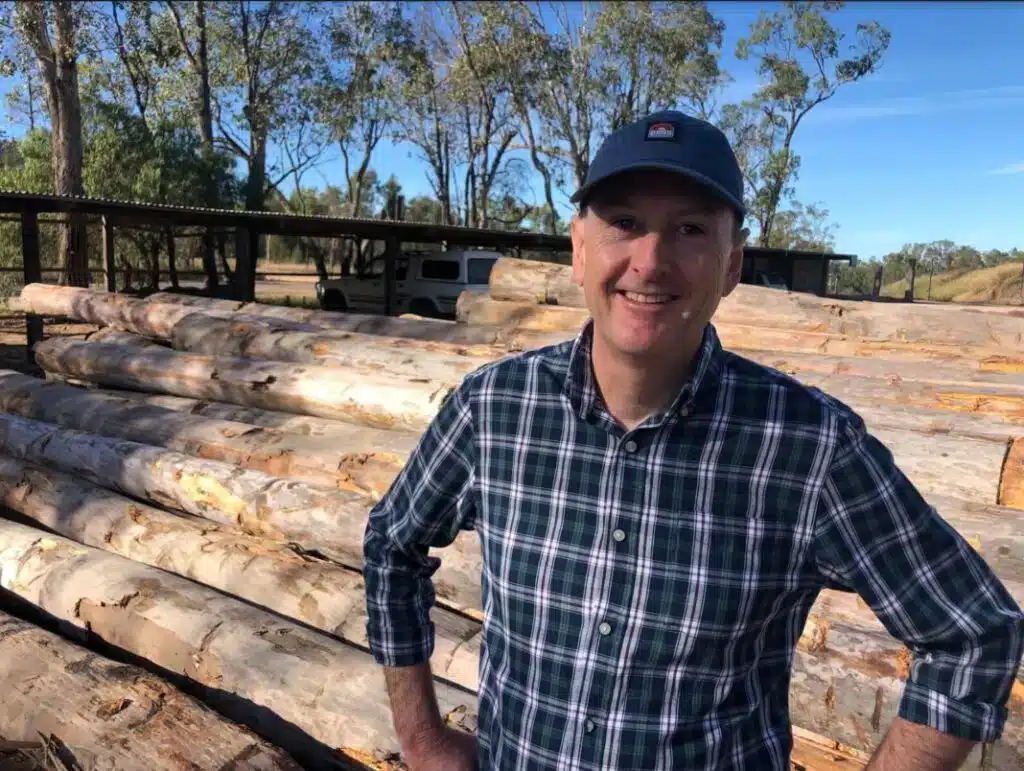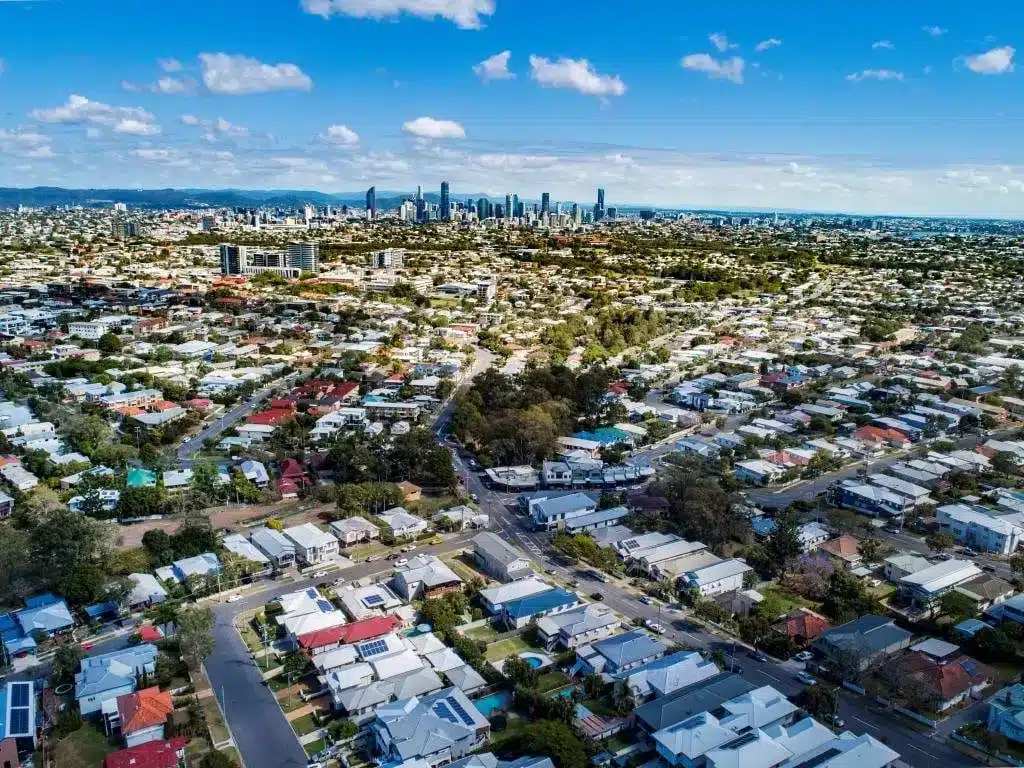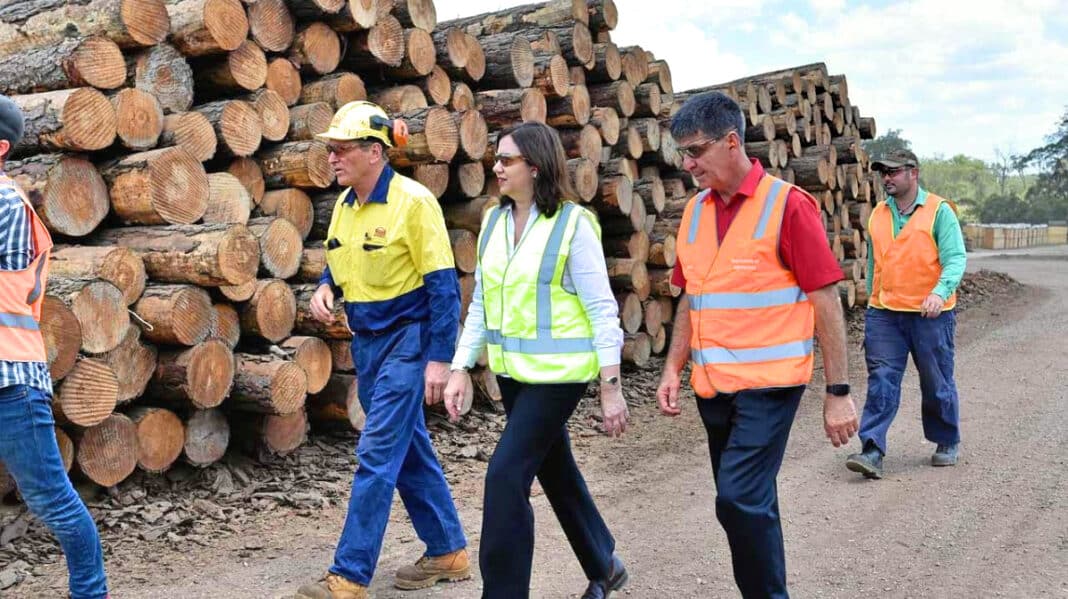Queensland runs the risk of running out of building materials, with the timber industry calling out the state government for poor policy and a budget that falls short of increasing timber supply to meet the demand for more than 1 million new dwellings by 2046.
That is according to Mick Stephens, the CEO of Timber Queensland, who spoke to Ben Dobbin from Rural Queensland on Friday. “While we support the critical need to accelerate housing and building projects for a growing population, the 2024-25 budget is weak when supporting essential supply chains such as timber for meeting the future construction of houses.”
“Up to 90% of homes in Queensland rely on local plantation softwood for timber framing,” Mr Stephens told Wood Central, “with Queensland native hardwood and cypress used extensively for structural beams and posts, flooring, cladding and decking products, furniture and cabinetry.”
“With high forecast housing demand, the state budget does not address longer-term measures to expand investment in farm forestry and new plantations for future timber supply while the government is dragging its feet on securing future hardwood supply from state-owned and private native forests.”

Queensland’s Native Timber Action Plan: Five Years of Inaction!
According to Mr Stephens, successive Palaszczuk and Miles governments have failed to deliver on a Native Timber Action Plan – with the lack of action now jeopardising the future of the $700 million hardwood industry, which supports more than 6,000 jobs across the state.
“Back in 2019, the Queensland Government committed to a Native Timber Action Plan to secure jobs and provide a long-term future for the hardwood industry,” Mr Stephens said. But “it’s now 2024, and we have no action other than one line in the budget papers to implement the plan with no funding commitments.” The consequence of inaction is “over $140 million in new mill investment is stalled as hardwood supply contracts from state forests expire at the end of 2024.”
Mr Stephens is now calling on the Queensland Government to increase future hardwood supply, with Timber Queensland providing several recommendations to the Miles government, including:
- Implement new 20-year hardwood supply contracts from existing state forests and other crown land for processors as soon as possible;
- Provide certainty for native forest owners to manage and invest in the responsible management of their forests by providing a long-term right to harvest, in accordance with the appropriate code of practice or management plan, to remove sovereign risk and
- Provide greater support for private forestry education and extension services so farmers and landowners, including traditional owners, can implement best forest management practices to increase timber yields, profitability and related environmental benefits.
“Recent research has found that state forests in South and Central Queensland generate better long-term environmental and social outcomes than if they were managed as national parks, with sustainable timber production an important benefit,” Mr Stephens said, adding that a shortage of native timber is providing additional pressure on a housing industry that is struggling to keep pace with demand.

According to the National Housing and Finance Investment Corporation’s State of the Nation’s Housing 2022-23 report, Queensland must build 45,000 dwellings per annum, an increase from 30,000 per year, to address a major housing deficiency.
“During COVID, the housing and construction sector experienced materials supply shortages, which led to blowouts in completion times as well as higher building costs and issues regarding the higher risks of imports with low environmental compliance,” Mr Stephens said.
However, “lack of action on a serious and sensible plan for the local timber industry will only increase these risks and exacerbate the ability of the state government to meet housing targets.”






